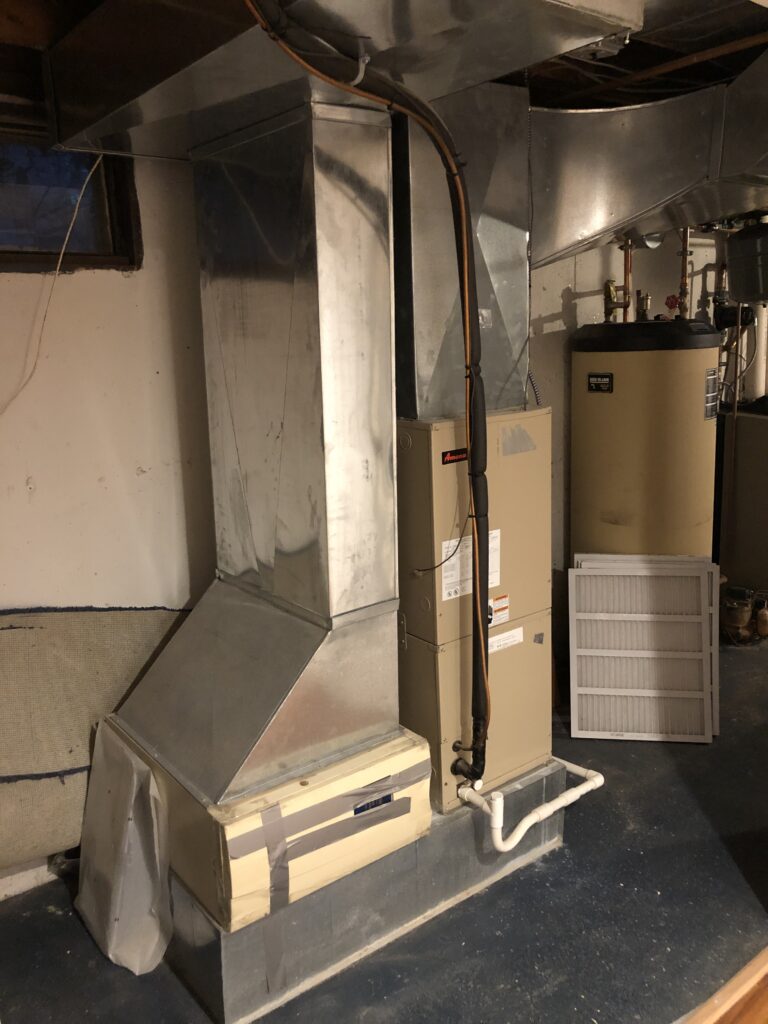Why Home Air Filtration Matters
When considering a home air filtration guide, it’s important to understand its impact on your health and well-being. Pollutants, allergens, and dust in your home affect the quality of the air you breathe. By choosing a home air filtration system, you protect your family with fresh, clean air in every room, ensuring a healthier living environment.
Types of Home Air Filtration Systems
There are several types of whole-home air filtration systems, each offering unique benefits:
Mechanical Filters (HEPA):
HEPA filters are powerful for removing dust, pollen, and pet dander. They capture 99.97% of particles as small as 0.3 microns, ensuring maximum air purity.
Activated Carbon Filters:
These filters target odors and gaseous pollutants. Activated carbon effectively traps harmful chemicals, smoke, and household smells, keeping your air fresh.
Electronic Air Cleaners (Ionizers):
Electronic air cleaners use electric charges to capture pollutants. They are efficient but may produce small amounts of ozone, which could be an issue for sensitive individuals.
UV-C Light Systems:
UV-C light destroys bacteria, viruses, and mold spores. Used alongside other filters, these systems enhance overall filtration effectiveness.
Hybrid Systems:
Hybrid systems combine multiple filtration methods. They provide comprehensive air purification for particles, pathogens, and odors.
Factors to Consider When Buying a Home Air Filtration System
Efficiency Ratings
First, pay attention to the system’s Minimum Efficiency Reporting Value (MERV). Higher MERV ratings mean more effective contaminant removal. Aim for a system that balances efficiency with airflow.
Filter Replacement Costs
Next, consider the cost of replacing filters. Some systems require frequent changes, so factor in long-term costs. A higher upfront cost may lead to better long-term savings.
Your Specific Air Quality Needs
Moreover, consider the specific needs of your household. For individuals with allergies or respiratory issues, HEPA or UV-C systems are essential for improving air quality.
HVAC System Compatibility
Make sure the air filtration system is compatible with your current HVAC system. A mismatch could lead to inefficiency or even damage, costing you more in the long run.
Energy Efficiency
Finally, opt for an energy-efficient model. With energy costs always on the rise, an efficient air filtration system keeps your utility bills low without compromising on performance.
Benefits of Home Air Filtration
Cleaner, Healthier Air
Home air filtration delivers cleaner air, reducing allergens and pollutants. This means fewer respiratory issues and overall better health for your family.
Odor Elimination
Activated carbon filters remove odors from cooking, pets, or smoke. Your home stays fresh, allowing you to enjoy a more pleasant living environment.
Extended HVAC System Lifespan
By reducing dust buildup, an air filtration system protects your HVAC unit, enhancing its efficiency and extending its lifespan. This saves you money on repairs or replacements.
Total Home Comfort
Unlike portable units, home systems clean the air in every room. With consistent comfort and minimal maintenance, you experience clean air without the hassle of moving units around.
Call Steve Patrick Air Today for Expert Guidance
Ready to improve your indoor air quality with a home air filtration system? Contact Steve Patrick Air today at 559-224-1729. Our expert team will guide you through the process, helping you choose the perfect system for your home. Start breathing cleaner, healthier air today!59-224-1729.





